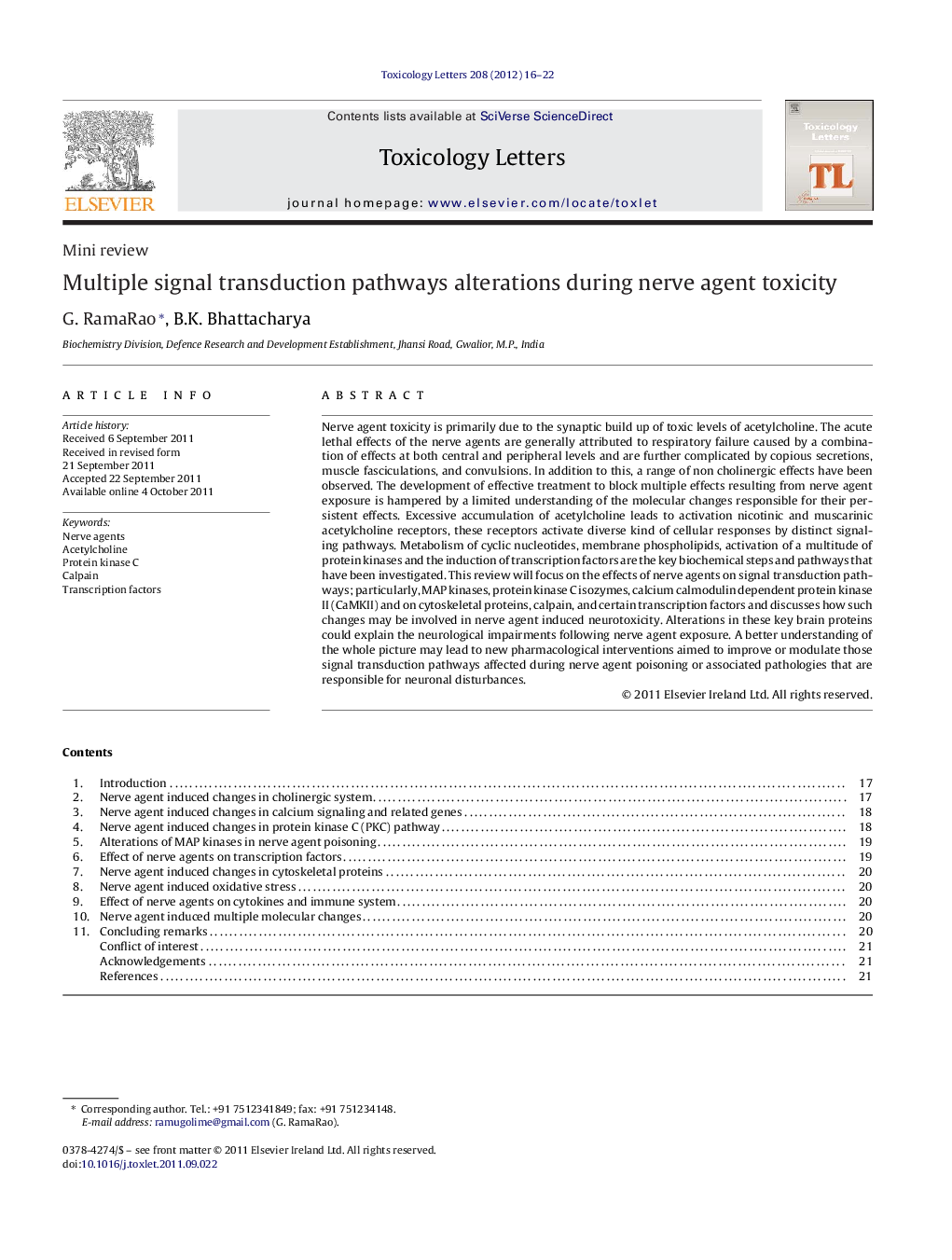| کد مقاله | کد نشریه | سال انتشار | مقاله انگلیسی | نسخه تمام متن |
|---|---|---|---|---|
| 2599975 | 1133244 | 2012 | 7 صفحه PDF | دانلود رایگان |

Nerve agent toxicity is primarily due to the synaptic build up of toxic levels of acetylcholine. The acute lethal effects of the nerve agents are generally attributed to respiratory failure caused by a combination of effects at both central and peripheral levels and are further complicated by copious secretions, muscle fasciculations, and convulsions. In addition to this, a range of non cholinergic effects have been observed. The development of effective treatment to block multiple effects resulting from nerve agent exposure is hampered by a limited understanding of the molecular changes responsible for their persistent effects. Excessive accumulation of acetylcholine leads to activation nicotinic and muscarinic acetylcholine receptors, these receptors activate diverse kind of cellular responses by distinct signaling pathways. Metabolism of cyclic nucleotides, membrane phospholipids, activation of a multitude of protein kinases and the induction of transcription factors are the key biochemical steps and pathways that have been investigated. This review will focus on the effects of nerve agents on signal transduction pathways; particularly, MAP kinases, protein kinase C isozymes, calcium calmodulin dependent protein kinase II (CaMKII) and on cytoskeletal proteins, calpain, and certain transcription factors and discusses how such changes may be involved in nerve agent induced neurotoxicity. Alterations in these key brain proteins could explain the neurological impairments following nerve agent exposure. A better understanding of the whole picture may lead to new pharmacological interventions aimed to improve or modulate those signal transduction pathways affected during nerve agent poisoning or associated pathologies that are responsible for neuronal disturbances.
► Calcium signaling (CaMKII, Calpain) was altered significantly after soman poisoning in the rat brain.
► Soman induced PKC activation indicates its role in nerve agent induced neurotoxicity.
► Soman exposure caused perturbations in expression of JNK3, phosphorylation of levels of MAP kinases and transcription factors.
► Nerve agent exposure induced changes in protein oxidation, c-Fos, tubulin levels and increased the phosphorylation of NF-H.
► Results suggest that exposure to nerve agent caused persistent changes in these key brain proteins.
Journal: Toxicology Letters - Volume 208, Issue 1, 5 January 2012, Pages 16–22